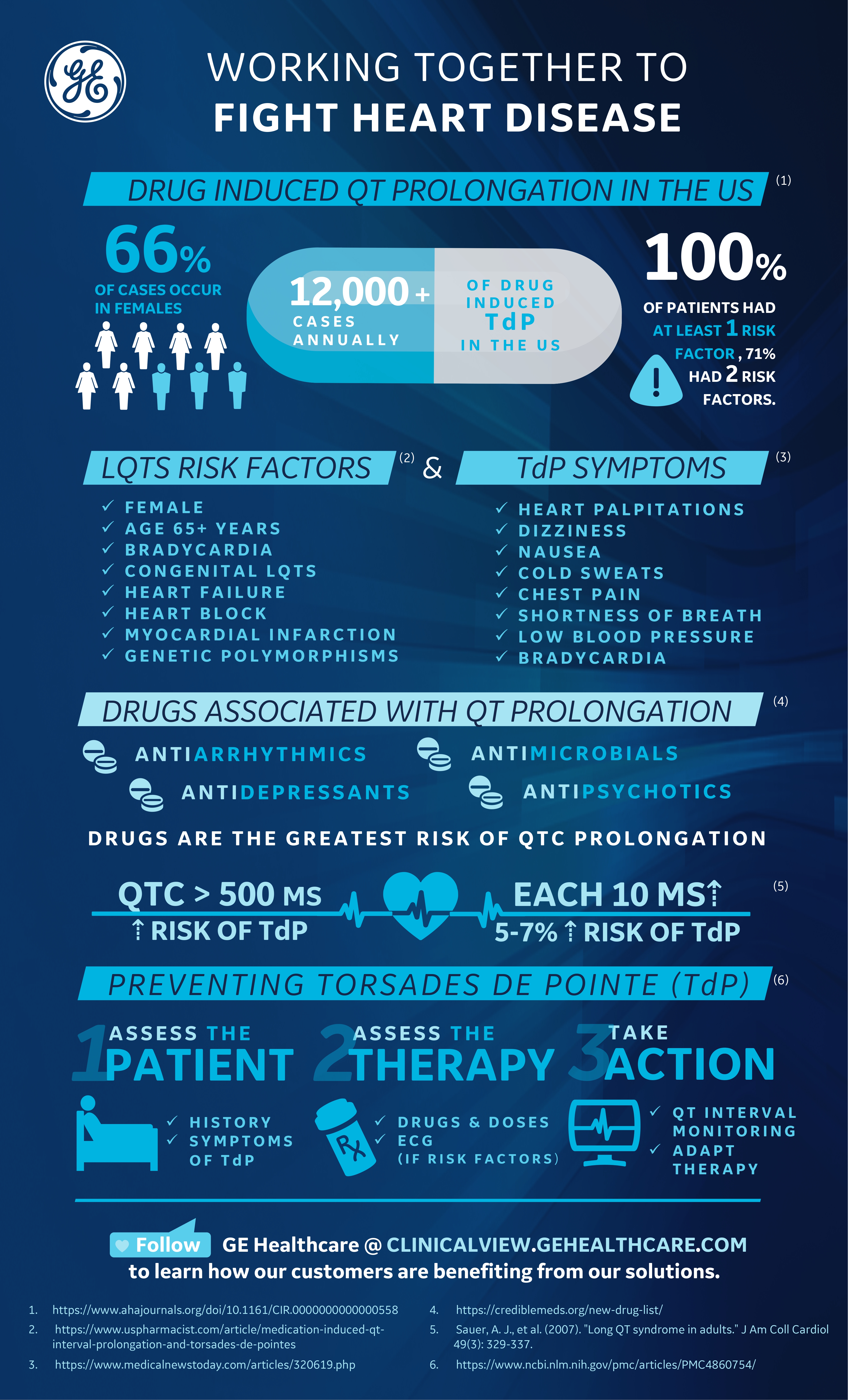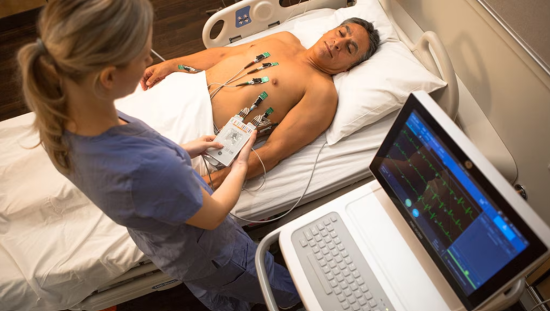Drug induced QT prolongation in the US 1
- 12,000+ cases annually of drug induced TdP in the US
- 66% of cases occur in females
- 100% of patients had at least 1 risk factor, 71% had 2 risk factors
LQTS risk factors2
- Female
- Age 65+ years
- Bradycardia
- Congenital LQTS
- Heart failure
- Heart block
- Myocardial infarction
- Genetic polymorphisms
TdP symptoms3
- Heart palpitations
- Dizziness
- Nausea
- Cold sweats
- Chest pain
- Shotness of breath
- Low blood pressure
- Bradycardia
Drugs associated with QT prolongation4
- Antiarrhythmics
- Antidepressants
- Antimicrobials
- Antipsychotics
Drugs are the greatest risk of QTc prolongation
QTc>500 ms increases risk of TdP. 5 Each 10 ms increase, increases a 5-6% the risk of TdP. 5
Preventing Tordades de Pointe (TdP)6
- Assess the patient
- History
- Symptoms of TdP
- Assess the therapy
- Drugs & doses
- ECG (if risk factors)
- Take action
- QT interval monitoring
- Adapt therapy
References:
- https://www.ahajournals.org/doi/10.1161/CIR.0000000000000558
- https://www.uspharmacist.com/article/medication-induced-qtinterval-prol…;
- https://www.medicalnewstoday.com/articles/320619.php
- https://crediblemeds.org/new-drug-list/
- Sauer, A. J., et al. (2007). "Long QT syndrome in adults." J Am Coll Cardiol 49(3): 329-337.
- https://www.ncbi.nlm.nih.gov/pmc/articles/PMC4860754/








